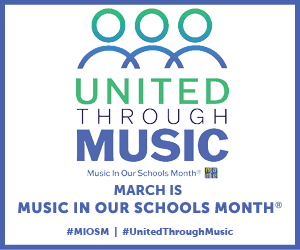MEMBER PROFILE
Scott M. Burgener
- Music Education Department Specialist
- Mesa Public Schools
- Mesa, Arizona

/ Membership / Meet Our Members / Scott M. Burgener
Scott M. Burgener is currently the Music Education Department Specialist for the Mesa Public Schools in Mesa, Arizona, overseeing the district’s K-12 music program for over 60,000 students. The Mesa Public Schools music program has been recognized as a “Best Community for Music Education” by the NAMM Foundation for the past six consecutive years. Prior to his appointment at the district level, Mr. Burgener was the band director at Mountain View High School in Mesa for eighteen of his twenty-five years in high school music education. During his tenure at Mountain View, his bands consistently received high ratings both in and out of state.
Mr. Burgener’s bands performed around the globe, including appearances in the Dublin St. Patrick’s Day Parade, the Macy’s Thanksgiving Day Parade, and a 10-day performance tour of China. His Wind Ensemble was honored to be selected three times to perform at the annual state music educators conference. Mr. Burgener is a Past-President of the Arizona Music Educators Association (AMEA), and the Arizona Band and Orchestra Directors Association (ABODA). He is a member of the National Association for Music Education (NAfME), where he serves as the Chair of the National Council of Music Program Leaders. Mr. Burgener is a member of Phi Beta Mu Bandmasters Fraternity, and is a life member of Kappa Kappa Psi, the national honorary band fraternity. He holds Bachelor’s and Master’s degrees in Instrumental Music Education from Arizona State University. He has been recognized with AMEA’s George C. Wilson Leadership/Service Award, one of SBO magazine’s “50 Teachers Who Make a Difference,” and the National Band Association’s Citation of Excellence Award. He is the director of the Fountain Hills Community Band, and has served as a guest conductor and clinician for several honor bands in the metro Phoenix area.


